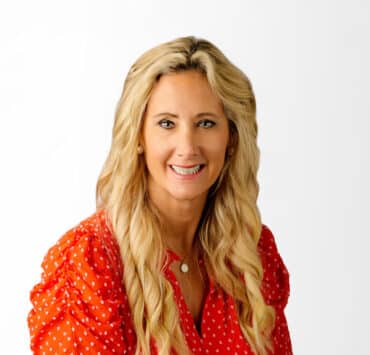Growing up playing soccer in Dallas, and getting recruited to play with the Division One team at St. John’s University, Benjamin Clack looks back at his athletic career and finds a number of life lessons—but there’s one that sticks out for him the most.
“The year we had our most success and went all the way to the national semifinal was the same offseason when we put in the most work. That’s when it really clicked with me that if you work hard and if you stay consistent, good things will come,” he says.
It’s a sentiment he’s carried with him ever since, and it comes in handy in his role today at Curaleaf, the world’s largest cannabis company by revenue. But how does a Division One soccer player wind up as the corporate counsel of real estate at a cannabis company—a position that doesn’t often come to mind when people think about that industry? As with many unforeseen career trajectories, it all started with a career fair.
“We’re still dealing with people who are just not educated on the racism and economics that the cannabis laws were rooted in before, and it’s not their fault. We have to kind of walk them through the facts.”
Benjamin Clack
Clack struck up a conversation with someone from a real estate development and construction consulting firm who ended up offering him a summer job. It went well, so after getting his MBA, Clack went on for another couple of years at the firm. He would’ve stayed longer, but his mother reminded him of a promise that he made to her: that he’d go to law school. Clack kept that promise and returned to St. John’s University School of Law, took some real estate law classes, and decided to stick with it.
From there, Clack went to a boutique law firm, but he quickly realized he preferred the contractional work to litigation. He then went to Greystone, where he had a contract with the Metropolitan Transit Authority in New York. But Clack wanted to work nationwide. Unfortunately, when that opportunity came for him at Hudson’s Bay, it was November 2019, and the pandemic followed not long after.
“At that point, at least for the legal team, it got kind of dark. All of the stores were shut down, and we were at war with the landlords,” Clack explains. So, when he was introduced to the opportunity at Curaleaf by a friend during the summer of 2020, the decision was simple.
“It was an opportunity to join an industry that was on the up versus one that was going down,” he says. That’s how he became the first and only real estate lawyer Curaleaf has ever had.
While Clack never necessarily foresaw becoming a part of the cannabis industry, his experience getting there sets an example for those who do. “In a lot of ways, the cannabis industry is a lot like other industries. The problem is there are only so many companies and law firms working in it. You can seek out cannabis-specific roles, but don’t be discouraged if you don’t land one right away. You can still work on your trade in another industry, gain experience, and then switch over,” he shares.
“We still need more diverse representation in the top levels of these cannabis companies. Considering what it’s done to the Black and Brown communities in this country, it’s only fair that those people should have real decision-making power.”
Benjamin Clack
Considering how vital his role is, it’s surprising that Clack is the first legal real estate counsel for Curaleaf. It’s even more surprising to learn that, in such a budding industry that’s constantly being hit with ever-changing zoning laws and regulations, He is one of the very few in-house legal real estate representatives in the industry.
“I remember looking at this position as an opportunity to take over my own program and learn for myself as I go,” he says. However, the past three years have been far more than a leadership opportunity. As he has worked to expand the company’s growing real estate portfolio, Clack has utilized much of the team values that were instilled in him during his time playing soccer—particularly when he’s working with regulators and board members who may still harbor some cannabis stigma.
It isn’t just about reducing the longstanding controversy of the plant itself either. As the industry evolves toward normalization, there is still much progress to be made for representation of minorities, whether it’s business ownership or access to use. Navigating these added prejudices is another aspect of Clack’s work.
“We’re still dealing with people who are just not educated on the racism and economics that the cannabis laws were rooted in before, and it’s not their fault. We have to kind of walk them through the facts,” he says. But that doesn’t alleviate any of the pressure—especially not for Clack, a Black male in an industry built upon the same business that has incarcerated millions of men who look like him for decades.
“Each state makes its own laws as it pertains to restorative justice, but because of the heavy burden of regulations, it’s difficult for the industry to truly give back as much as they should,” he says. “We still need more diverse representation in the top levels of these cannabis companies. Considering what it’s done to the Black and Brown communities in this country, it’s only fair that those people should have real decision-making power.”
Feuerstein Kulick applauds Benjamin Clack for his success at Curaleaf. We continue to be impressed by his dedication and commitment to Curaleaf and the cannabis industry as a whole.


